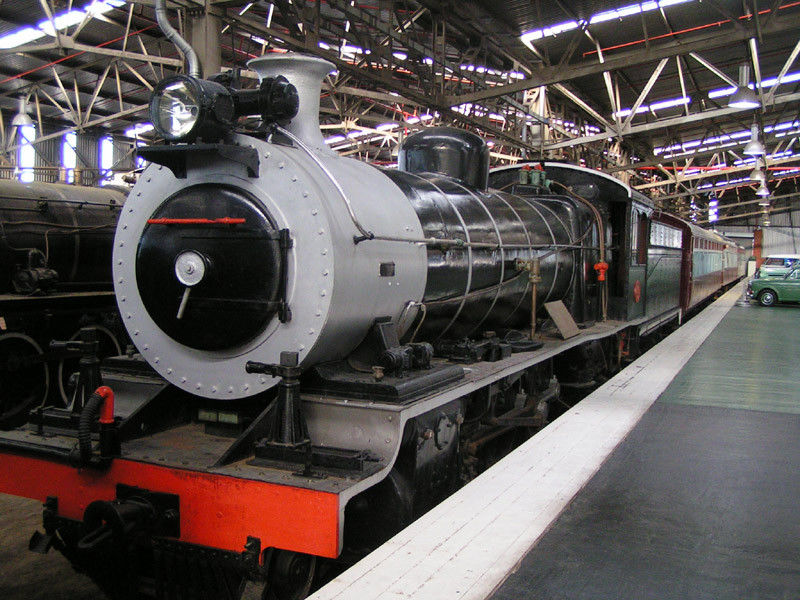Engineering locomotives into the future with Maletle
Posted By: Transnet Foundation
01.07.2013
The Transnet Foundation communications team struck a bit of luck and got a brief moment to chat with Maletle Mosoane, a former Transnet bursary beneficiary who now spends her precious hours making sure that Transnet’s diesel locomotives are available and reliable, an undoubtedly commanding exercise in the sustenance of Transnet’s holistic customer satisfaction strategy.

The Transnet Foundation communications team struck a bit of luck and got a brief moment to chat with Maletle Mosoane, a former Transnet bursary beneficiary who now spends her precious hours making sure that Transnet’s diesel locomotives are available and reliable, an undoubtedly commanding exercise in the sustenance of Transnet’s holistic customer satisfaction strategy.
Miss Mosoane matriculated in 2005 and has never looked back, she says. Her story growing up in rural Limpopo is one identical to that of millions of black South African youths who are finding it a challenge to break through into the job market. But because of her perseverance and aptitude for figures, Mosoane was fortunate to be picked up for a Transnet Bursary after rigorous screening processes, and things have never been the same since, she says.
Her excellent matric results in mathematics and science automatically powered her course of direction and steered her towards her passion - Electrical Power Engineering - completing her tertiary in 2008. She says she drew her inspiration from the thought of her humble background and that gave her the energy that propelled her to beat all odds and work herself out of the grips and dungeons of poverty.
“I was not afraid of the future anymore after securing that bursary. I knew I was guaranteed a job at the end of my studies at Transnet. And it happened just as I had expected. My first job was to implement quality systems for locomotives at Transnet Rail Engineering in Pretoria,” says Mosoane, with pride.
“Working in a male dominated environment was a bit of a challenge for me. Not only was I finding it hard to adjust, but also accepting the fact that I will be a female employee amongst many male colleagues in this field.
“Fortunately,” she says, “Transnet has systems, programmes and policies that cater for a diverse workforce. The support was also amazing from my male colleagues. I had a warm welcome from my colleagues and managers, making it easy for me to adjust and acclimatise,” she beams.
Mosoane confidently tells us that she settled down extremely well at Transnet Rail Engineering’s diesel maintenance depot in Koedoespoort in Pretoria, where she is charged with implementing systems that qualifies locomotives as best quality and in excellent condition, and also ensure that properly calibrated tools are used for all jobs undertaken at the depot.
Asked if her work is not repetitive, she responds: “Not at all, I learn more day in and day out. We have a lot of challenging circumstances and projects and days are certainly never the same, which makes it all the more interesting.”
There is one person she will never forget: Ms Theresa Moila, Senior Manager: Education at the Transnet Foundation, who she met via the Transnet Scholarship Programme. She describes her as an all in one amazing package. “She is a sister, a pillar of strength, a friend, a fan and a critic. All in one package, but above all, she could balance all of these.”
The Pretoria based engineer says that as a young woman, South Africa is alive with volumes of opportunities.
“I mean a rural girl like me coming from a very humble background having gone to an ordinary school in the heart of rural Limpopo to go from that situation to where I am today, is just an embodiment of strength, courage and the go-getter mind-set. It also shows how much opportunities our beloved country offers to those women who dare to rise above perceived limitations,” concludes Mosoane.







